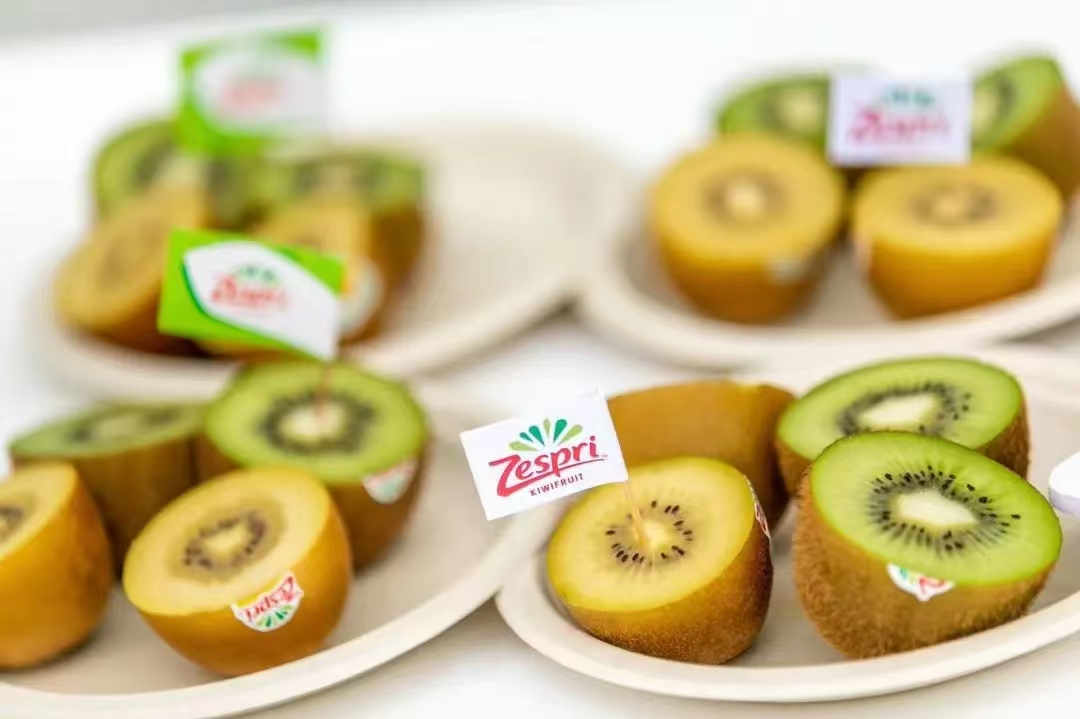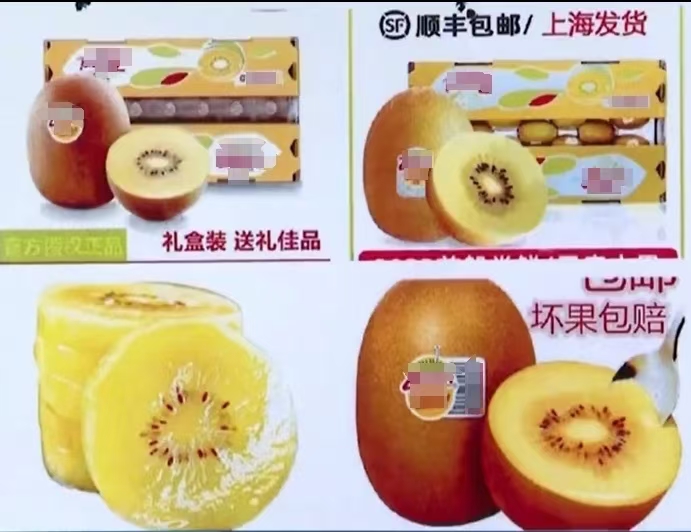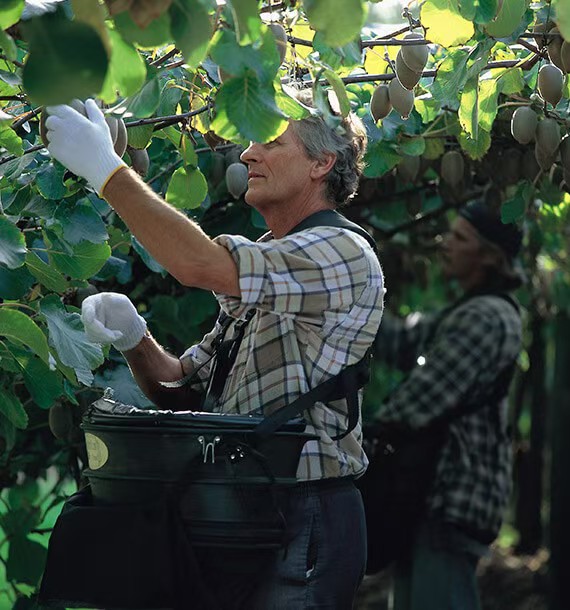 Zespri Makes New Progress in Protecting IP in China as Three Infringers Sent to Jail
Zespri Makes New Progress in Protecting IP in China as Three Infringers Sent to Jail(Yicai) Aug. 16 -- Zespri International, the world's largest kiwifruit marketer, has made further progress in defending the New Zealand firm’s intellectual property rights in China, after a Shanghai court recently handed three infringers prison sentences.
On July 22, the court sentenced three individuals to three years and nine months in prison for violating Zespri's IP and fined them CNY550,000 (USD76,830) each.
The defendants – surnamed Dai, Zhao, and Peng -- bought locally grown kiwifruit from farmers in Pujiang county, Sichuan province, had Zespri’s registered trademark labels and packaging counterfeited, and then sold the newly labeled and packaged fruit through their online stores.
They sold 650,000 to 850,000 pieces of kiwifruit in this way, raking in about CNY3.2 million (USD447,000).

“This verdict sends a strong message of zero tolerance for illegal activities involving counterfeit use of Zespri trademarks and intellectual property, as well as for illegal actions that harm Chinese consumers' interests,” Michael Jiang, president of Zespri China, said in comments posted on the unit’s website on August 14.
“Zespri is satisfied with the Shanghai court's ruling,” Jiang added.
“We anticipate that this will serve as a highly significant deterrent against such behavior, considering CNY550,000 represents a substantial amount, based on approximately CNY3 million of sales for which we have concrete evidence,” Ivan Kinsella, vice president of public affairs of Zespri China, told Yicai in July.
Additionally, Mount Maunganui-based Zespri has filed lawsuits against the manufacturers and sellers who provided the counterfeit labels.
“We are focussed on the criminal counterfeiting of our fruit using fake labels and packaging and fake authorization letters to list the products on their stores on ecommerce platforms,” Kinsella noted.
The case concerning the unauthorized production, marketing, and sale of Zespri kiwifruit is also progressing through the courts system as an additional measure in IP protection.
China Production
“To date we have not authorized any growers in China to grow any of our varieties,” Kinsella pointed out. But based on Zespri’s own assessment, the unauthorized planting area of Zespri SunGold kiwifruit in China is about 8,387 hectares, with production this year comparable to the whole of the firm’s exports to China.
As one of the world's leading kiwifruit marketers, Zespri works with about 1,500 growers in countries such as Italy, South Korea, Japan, and France to grow the fruit, in addition to 2,800 in New Zealand.

“Zespri has definitely considered licensing to grow in China to supply our local consumers here with fruit during the New Zealand off-season, so they can get high-quality, healthy, great-tasting Zespri 12 months of the year,” Kinsella said.
According to Chinese agriculture expert Hao Beihai, Zespri's kiwifruit varieties are excellent and the brand has strong global recognition. He suggested that future cooperation between Zespri and Chinese growers would be beneficial and worth exploring.
Zespri's variety cultivation is backed by decades of effort and investment, and their deserved returns should not be infringed upon, Hao, who is also the general manager of Beijing Fulai Times Brand Consulting.
Lessons for Chinese Brands
China must respect variety protection and IP rules, and not infringe on others' rights, Hao said in regard to the efforts that global brands such as Zespri have to make to protect their IP. This is particularly important for Chinese brands aiming to further marketize and go global, he said on August 14.
Not only kiwifruit but also duck, pig, soybean, and corn varieties have been “choked” by the West, Hao said, so China’s Ministry of Agriculture and Rural Affairs has proposed a new initiative, which focuses on “variety improvement,” “quality creation,” “brand building,” and “standardized production.”
Hao noted that Zespri excels in kiwifruit variety, quality standardization, and continuous supply capability, areas where many Chinese agricultural products are lacking and have a long way to go.
“If you want to create a truly long-term brand, or even a large-scale brand, you must focus on these issues,” Hao said. “On the surface, an agricultural product is a brand, but what's behind the brand is the supply chain, sustainability, stable capacity, brand uniqueness and variety.”
‘Standout China’
Depending on the kiwifruit, Zespri’s global sales rose 2 percent to NZD3.99 billion (USD2.4 billion) in the 2023 to 2024 financial year. In China, which accounts for almost a third of the company’s global market, nearly 40 million boxes (135,000 tonnes) had been delivered by March.
“China was a standout in terms of being able to deliver strong value for SunGold, reflecting the demand we're continuing to see for this variety,” according to Chief Executive Officer Dan Mathieson announcing the company’s financial year results in .
Kinsella said Zespri consistently invests in innovation, with new variety development the largest part of that outlay. “New kiwifruit varieties take longer to develop,” he noted. “They need to be great to eat, easy to grow and store well. To get all three together is the challenge.”
Regarding the competition from China’s kiwifruit growers, Kinsella has this to say: “China is the home of kiwifruit and around half of the world's kiwifruit are grown and consumed in China. It is natural that China will continue to improve the local varieties and this will help build the industry and expand the fruit bowl to include kiwifruit, in China and globally. We welcome that.
“New Zealand, as the key producer in the southern hemisphere, will always be complementary to that.”
Editor: Tom Litting